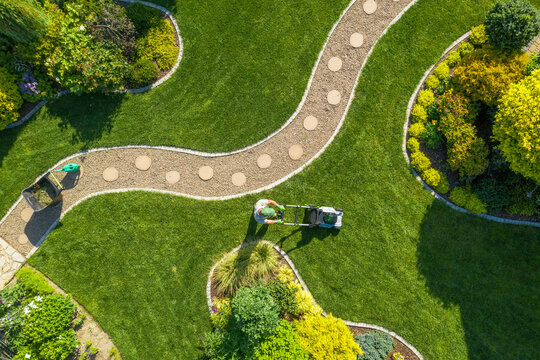Creating wildlife-friendly gardens is a growing trend in Nuneaton, as homeowners and landscape gardeners recognize the importance of supporting local wildlife and fostering biodiversity. By designing landscaping that provide habitat and resources for various species, Nuneaton’s gardeners are contributing to the health and sustainability of the local ecosystem.
One of the key components of a wildlife-friendly garden is the inclusion of native plants. Native plants are well-adapted to the local climate and soil conditions, making them a reliable food source and habitat for native wildlife. Birds, bees, butterflies, and other pollinators are particularly attracted to native plants, which provide essential nectar, pollen, and shelter. Nuneaton’s landscape gardeners are incorporating a diverse range of native species into their designs to create gardens that support local wildlife and enhance biodiversity.
Providing water sources is another important aspect of creating a wildlife-friendly garden. Water is essential for wildlife, and incorporating features such as birdbaths, small ponds, or water gardens can attract a variety of species. These water sources not only provide hydration but also offer opportunities for birds and insects to bathe and forage. Landscape gardeners in Nuneaton are designing water features that are both functional and aesthetically pleasing, contributing to the overall appeal of the garden while supporting local wildlife.
Creating shelter and nesting opportunities is also crucial for wildlife-friendly gardens. Various species require different types of shelter, such as birdhouses, bat boxes, and insect hotels. These features provide safe places for wildlife to rest, nest, and seek refuge from predators. Nuneaton’s landscape gardeners are incorporating these elements into their designs to create a welcoming environment for a diverse range of species.
Minimizing the use of pesticides and chemicals is another important practice for supporting wildlife. Pesticides and herbicides can be harmful to beneficial insects, birds, and other wildlife. By using organic gardening practices and natural pest control methods, Nuneaton’s landscape gardeners are helping to protect wildlife and maintain a healthy garden ecosystem. Techniques such as companion planting, encouraging natural predators, and using non-toxic alternatives contribute to a more balanced and sustainable garden environment.
Incorporating diverse plantings and creating garden layers can also benefit wildlife. Gardens that feature a variety of plant types, including flowering plants, shrubs, and trees, offer multiple resources and habitats for different species. Creating garden layers, such as ground cover, mid-height plants, and tall trees, provides diverse environments and food sources for wildlife. Nuneaton’s landscape gardeners are designing gardens with a range of plant heights and types to create a rich and varied habitat.
Educational opportunities and community involvement are additional benefits of wildlife-friendly gardens. By participating in wildlife gardening projects and sharing knowledge with others, homeowners and landscape gardeners can raise awareness about the importance of supporting local wildlife and biodiversity. Nuneaton’s landscape gardeners are often involved in community initiatives that promote wildlife-friendly practices and encourage residents to create their own wildlife habitats.
In summary, creating wildlife-friendly gardens in Nuneaton involves incorporating native plants, providing water sources, creating shelter, minimizing chemical use, and offering diverse plantings. By designing gardens that support local wildlife and foster biodiversity, Nuneaton’s landscape gardeners contribute to the health and sustainability of the local ecosystem while enhancing the beauty and functionality of outdoor spaces.

